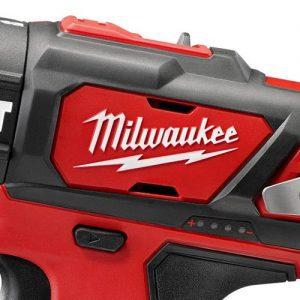Ask any homeowner and they most certainly have a power drill in their toolbox for routine home repairs and DIY projects. Impact drivers are a fairly new tool on the market that are quickly having people compare the drill vs impact driver.
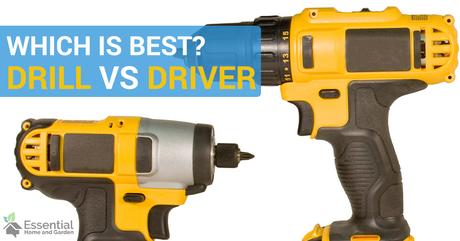
While both tools look relatively similar side by side and have many of the same functions, there are some distinct differences between the two.
This article will compare the two tools and help you determine which one is best suited for your next project.
What is an Impact Driver?
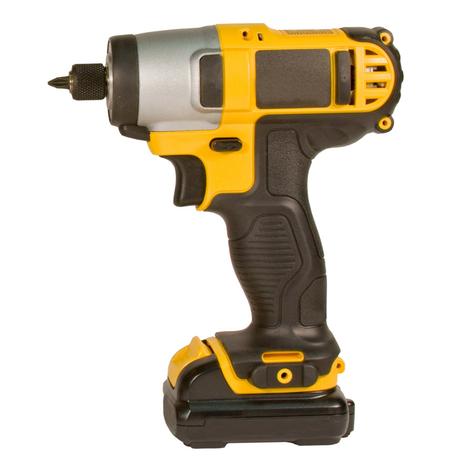
You probably already know what a power drill is and looks like, but what is an impact driver?
An impact driver is a specifically engineered tool designed to do one job: drive screws. Not only does a cordless impact driver drive in screws, it does so with intense speed and power that you won't find in a traditional power drill.
Learn more about cordless tool batteries here.
An impact driver does not accept a keyless chuck, instead it uses a collet that uses hex-shanked driver bits. Impact drivers can drive even the longest and fattest screws in with efficiency, where a regular power drill may stall out.
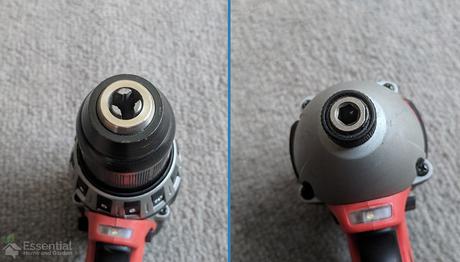
The cordless impact drill uses the powerful combination of bit rotation and hard hitting blows to bust through even the thickest or toughest of surfaces. Impact drivers can deliver up to two to three more times power than a traditional drill.
Despite its intense power, the driver manages to be easy and comfortable to use. The concussive action of the driver transfers much of its power directly to the screw, not to your hand or wrist. This allows you to drive in screws with incredible force and accuracy without compromising your arm.
Drill vs Impact Driver
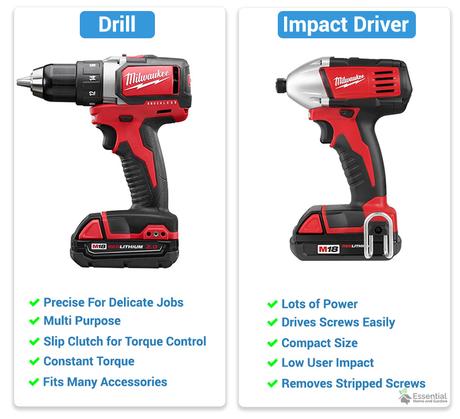
At first glance, you may not recognize the difference between a drill and an impact driver, however, there are many differences that allow them to stand apart.
For starters, a traditional drill is usually a bit bigger than an impact driver. Drivers are typically smaller and more compact, although they pack a more powerful punch.
A standard drill has an adjustable clutch which allows you to adjust the torque, whereas an impact driver does not. The adjustable clutch on a standard drill prevents fasteners from being overtightened and damage to the drilling surface.
The head of a standard drill includes a keyed or keyless chuck. Impact drivers, on the other hand do not have a chuck, instead they have a collet that accommodates hex shanks. In order to withstand the force of an impact driver, impact-rated hex bits are required.
The impact driver can deliver more power in quick burst, which results in more torque. This action happens automatically when the driver meets resistance. Cordless impact drivers typically come with one gear, however, there are more advanced models available that have up to three gears.
Drill vs Impact Driver: The Pros and Cons of Each
When you are determining which tool to use for your next home improvement or DIY project, it can be helpful to know the pros and cons of each tool. We break it down here for you:
Power Drill
Impact Driver
Each of these tools offers their own set of advantages and disadvantages. Determining which one to use for your next project will depend on what exactly you need it for.
As a general rule, if you are only going to buy one of these tools, the drill will provide you with more versatility for everyday use. Drills are great for working with drywall, soft woods and plastics as the drill won't bend or break the material.
If you are looking at working on a job that requires lots of drilling through dense materials or with long, thick fasteners, consider investing in a cordless impact driver to save you some time and wrist pain.
Both the drill and impact driver are great tools to have in your tool box to bring out when duty calls. We hope that this article helped you understand the differences between these two drills and when to use a drill vs impact driver.
Which Tool to Use for Your Next Project
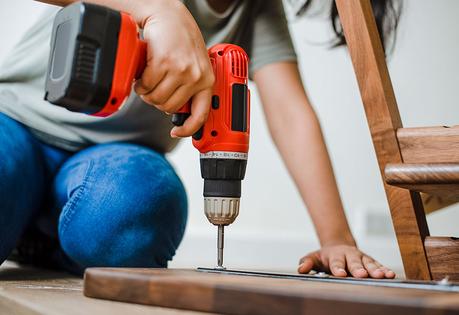
Now that you understand the differences between a traditional power drill and an impact driver, which one should you use for your next project? The answer to this question depends on what kind of project you are working on and for what purpose you need a drill.
Standard power drills are primarily used for drilling holes and screwing in small fasteners. An impact driver is designed for screwing in large fasteners. Screws that are longer can be driven in much easier with an impact driver.
A traditional drill is better suited for jobs that require precision. Considering an impact driver is not well suited for tasks that require precision, it should be used for jobs where the placement of the hole is not crucial, but extra torque is required.
A cordless impact driver can easily blast through dense wood or metal, while a traditional power drill may be stopped in its tracks.
Related posts
